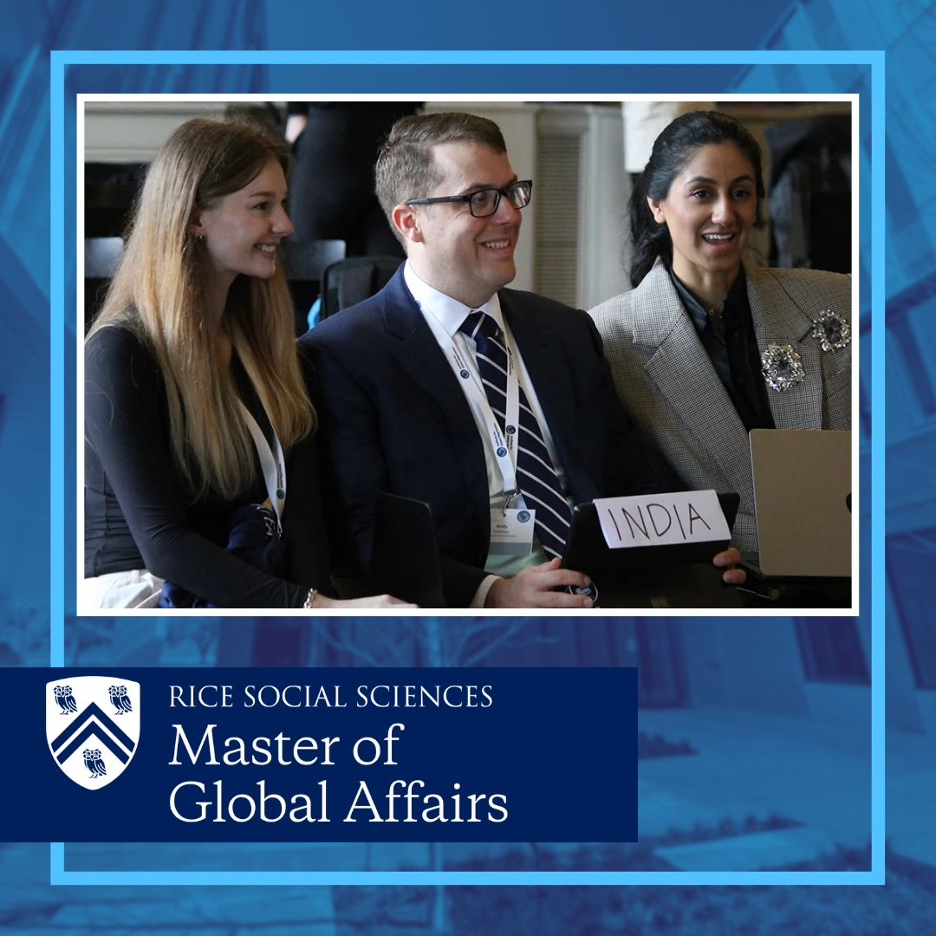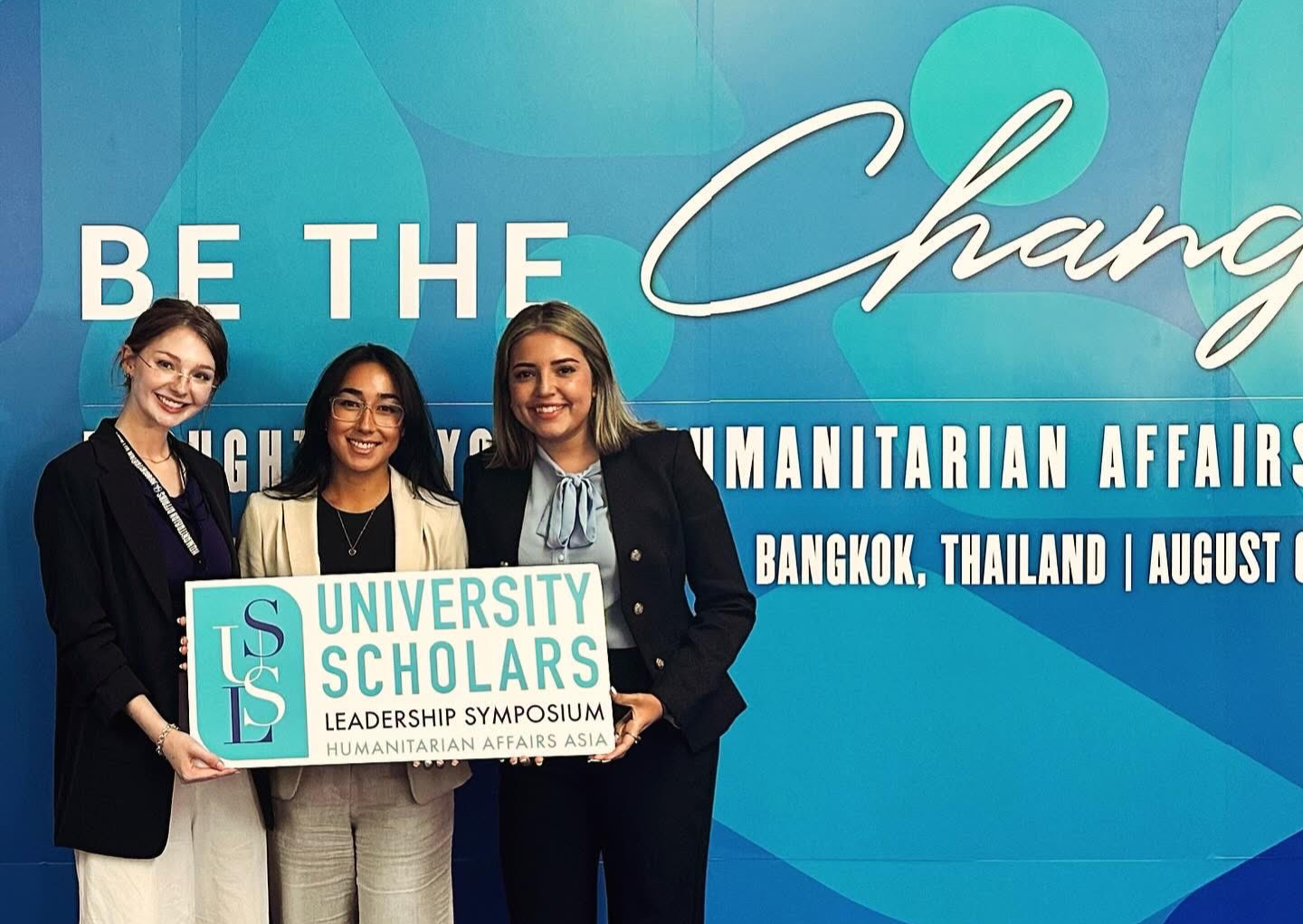As a generally introverted person, the idea of networking has always felt challenging. In my time as an undergrad, I nearly always avoided professional events that required socializing because 1) I thought networking was transactional and "fake" and 2) I lacked the confidence to try it out. I missed valuable opportunities to shape my career because I avoided networking—whether those opportunities were explicit career advancements or simply helping me figure out what I wanted to do. Now, in graduate school, I’ve slowly learned to embrace networking in ways that are authentic to me.
Reframing the Purpose of Networking
Networking isn’t about feeling like you have to “perform” at social events. I used to think that networking was inauthentic, something only people who saw others as tools for their own gain participated in. However, I then learned that networking is about building a trustworthy community that allows people to share resources (contacts), knowledge, and opportunities more efficiently, reducing uncertainty because they know each other's character. In a world where jobs are often filled through a stack of digital resumes, many now AI-generated, people want to connect with individuals who they know and trust, and whose reputation is on the line. For me, this really changed my mindset around networking. And, if even now you still don't buy this logic, the reality that most jobs are filled through referrals/networking should make you question not attempting to build some professional connections. While the exact percentages vary across sources, some estimates are that anywhere from 50 to 80% of jobs are filled through networking. And, there are benefits beyond finding a job. Networking can help you find opportunities to speak at or moderate a conference, work on a publishable article, or facilitate a important connection.
What Networking Has Looked Like for Me at Rice
Reading about what I have done to build this skill might give some inspiration on where to start, and then you can build your networking plan from there. For me, I know where I want to go after this program: to law school. This gave me a reason to spark conversations with individuals at events that I learned were attorneys. For example, if I discovered someone was an attorney, I would mention my plans to attend law school next fall, which often led to insightful conversations and useful advice. Even if you aren't set in stone on what you want to do, it could be a good idea to just use what you generally have in mind and go with that when starting up conversations. Second, sign up for opportunities that are presented and keep an eye on your email. Two really cool opportunities I got to take up this past summer first appeared as emails asking students to apply (and both were fully covered in my program, a shameless plug for the Rice Master of Global Affairs Program ;-) ).
The first was a Global Negotiation Conference. I was surprised to find out that there are technical elements of negotiation that can be taught and practiced via simulation. It was held in Zurich, Switzerland at the University of Zurich. The second conference was a student leaders symposium held in Bangkok, Thailand, the University Scholars Leadership Symposium. At both events, I made so many valuable connections with like minded students and experts imparting their wisdom on us. When thinking about reasons to keep in touch, I found it useful to think about my academic interests and what kind of professional expertise would be valuable for me. For instance, could this be a useful contact while working on my master's thesis? That is, would this person be open to me emailing questions or having a phone call with. Or, does this person work in a field that I am interested in pursuing a career within? In either case, the events presented me (directly and indirectly) with two amazing opportunities, where I am now interning. These experiences have opened doors and provided more opportunities than I initially imagined. If you are interested, you can also read about our experience here: https://socialsciences.rice.edu/news/summer-global-experiences-mga-students and https://fpguide.foreignpolicy.com/2024-grad-programs/institutions/rice-university-school-of-social-sciences/

Now, if I see an opportunity come up in my inbox, I ask myself how long the application will take—if it's less than or about 30 minutes, I usually apply for it if it’s aligned with my career goals. Applying for opportunities is often a numbers game, and persistence eventually pays off. This brings me to the second big point of learning for me:
Dealing with the Dreaded Rejection
It will 100% happen to all of us frequently. Those who become experts at what they do never started out perfect. Excellence comes from the ability to endure repeated failure. With each failure, the person learns and thus comes one step closer to expertise. Unfortunately, the cliches are cliches for a reason, they are true. The key is to embrace failure and move forward, rather than avoiding it and staying stagnant. Most people won’t respond, but you must keep trudging along until someone does. Persistence is absolutely key in landing opportunities.
Other Resources:
- Go to Rice's student organization website https://owlnest.rice.edu/ and make a list of clubs that sound interesting and send emails to the contacts listed under the clubs. There are over 300 and span topics such as TEDx Rice, consulting, banking, women's networking groups (there are multiple!), culture, comedy, and even neuro technology. Another thing I'll mention on this, employers like to sniff out how invested you are in a topic and if you are actually passionate about it. Being involved in a club related to it will certainly help you pass that test.
- Go to Rice's alumni network website, SallyPortal, which offers students with mentorship opportunities, networking opportunities, and some alumni even post job application openings for their companies.
- Use LinkedIn. I semi-regularly send messages to people who have backgrounds that align with where I want to go. Usually I don't get a response, but sometimes I do. The calls and opportunities that have come from those have been very valuable to me.
- Go to events. If you are interested in public policy or law, the Baker Institute at Rice may be a great opportunity to meet similar students and some lawyers. They have free events open to the public all the time.
- Attend DOERR Institute for New Leaders events and use their activation coach source. These events are free for Rice students and if you complete one activation coaching (4 separate 1 hour sessions) and 5 catalyst modules, you can get a certificate. The value of maturity is often underrated, and employers like to see that you are a mature and emotionally intelligent individual that can manage stressful situations.
About the author:
Anna Lucas is a Master of Global Affairs candidate at Rice University, with interests in international law, outer space, and emerging technologies. She got her B.Sc. in Biochemistry and Philosophy from Baylor University in Waco, Texas. She will continue her studies at NYU Law in Fall 2025, pursuing a career in international law.
Further Reading:
10 Networking Tips for Grad Students Who Aren’t Extroverts
Embracing Growth: My journey in the 2023-2024 Women in Leadership cohort

